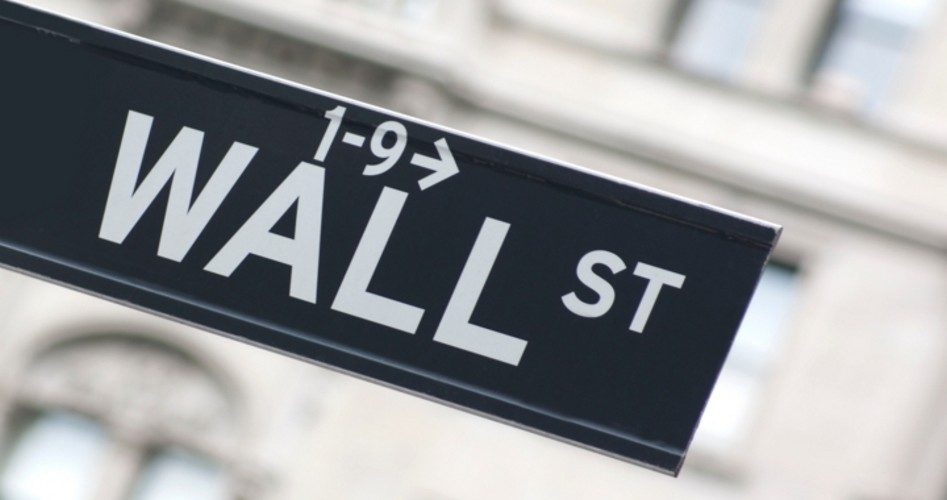
At bottom, Wall Street is a gigantic gambling casino where investors and money managers predict the future and then place their bets. Those trying to justify Wall Street’s present nervousness are coming up with next to nothing.
Big banks such as JPMorgan and Bank of America, try as hard as they might, can’t make a single case for a downturn in the U.S. economy next year. Bloomberg allowed them a thousand words to make their case, but they failed. “On balance,” said these worthies, “[we’ve] been finding that a 2019 downturn still isn’t likely — though it’s becoming slightly more so.”
First are initial unemployment claims, the precursor, it is said, of future weakness in job hiring. “Initial jobless claims,” explained these experts, “are heading slightly higher on a weekly basis of late … but they’ve been at extraordinarily low levels and their recent pop has been relatively small.”
Nothing here. Move along.
Other indices are auto sales, industrial production, and aggregate hours worked, according to Bank of America’s Michelle Mayer. She said that the bank’s “gauge based on [these indices] puts the chance [of a recession] at less than 10 percent over the next six months.”
Keep moving.
Business sentiment measures are another early warning signal, according to JPMorgan’s seers, which they say “have softened recently.” But the Institute of Supply Management’s two economic indicators, manufacturing and services, both jumped higher last month. Nothing to see here either, but the bank’s analyst, Jesse Edgerton, will stay focused on what he calls “high-frequency data … for an up-to-date picture of [economic] activity.” And he’ll be sure to let everyone know as soon as something substantial shows up.
Moving on.
The most revered of all indicators is the Fed’s Survey of Professional Forecasters, according to the banks. And, they say, “they’re starting to sour on the economy’s prospects four quarters from now.” But, they added, “their pessimism might be too remote to mean much.”
Conclusion: After writing 1,000 words, the banks have come up with essentially nothing. As a hat-tip to reality, it ended its article with this from Deutsche Bank’s Torsten Slok, who wrote last Thursday that “the incoming data continues to be good. Where is this recession the market is so worried about?”
Precisely.
Holiday sales are expected to set records. OPEC’s piddling response to the threat of oversupply of crude in world markets continues to drop oil prices and the cost of gasoline, which translates for more than 200 million American drivers into a tax-free bonus just in time for Christmas. Oh yes, and real wages are increasing faster than they have in years, while price increases (“inflation,” according to the Fed) have moderated below two percent on an annual basis.
What is the Fed doing about raising interest rates to kill the non-existent inflation monster? It has raised interest rates eight times since 2015 and is likely to raise them again next week. But what about the future? Prognosticators have just changed their tunes: The Fed was expected to continue raising rates well into 2019, but now futures traders (those who bet real money and not just ink on Bloomberg’s website) are backing off. They are betting that the Fed might raise interest rates one more time next year (instead of the three to four times experts were predicting just a month ago), and some are putting large sums down on the bet that — ready? — the Fed will reduce interest rates by one notch next year instead.
With China cutting tariffs on American-made vehicles from 40 percent to 15 percent, some can see the day when trade between the two nations will actually increase because of those lower tariffs. Where is the recession forecast in that? How would stocks react to that? Investors sitting on the sidelines waiting for things on Wall Street to settle down won’t have to wait long. The U.S. economy is doing just fine, and Wall Street investors will shortly put the recent gyrations in their rear-view mirrors and begin making their bets on a healthy and robust economy continuing into the foreseeable future.
An Ivy League graduate and former investment advisor, Bob is a regular contributor to The New American magazine and blogs frequently at LightFromTheRight.com, primarily on economics and politics. He can be reached at [email protected].
Related article:



